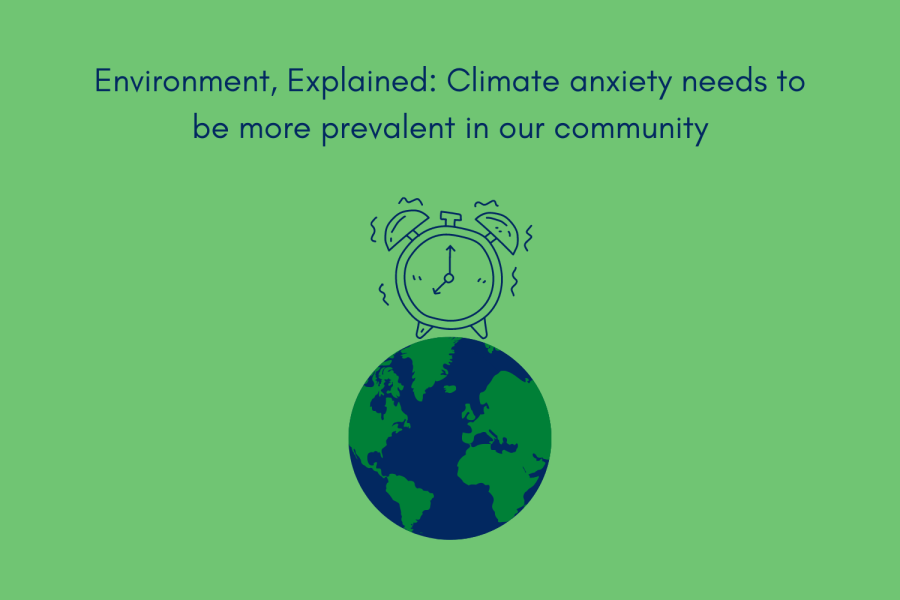Environment, Explained: Climate anxiety must be more prevalent in our community
Climate change could be irreversible by 2030 if serious action is not taken, according to a report conducted by the UN Intergovernmental Panel on Climate Change. I don’t know about you, but that scares me.
“Climate anxiety,” as defined by The Lancet Planetary Health, is anxiety related to the global climate crisis and the threat of environmental disaster.
As an environmentalist who cares about the future of our planet, I frequently read up on new progressions in climate change research, and my social media feed is flooded with sustainable developments. Often, I come across more pessimistic environmental news than I do positive, leading me to slip into a feeling of impending doom surrounding the consequences of the climate crisis worldwide.
Grinnell Glacier in Montana, U.S. recedes as water temperatures in the area rise between 1938 and 2006.Yet, I rarely feel as though my peers place the same importance on conservation. Eyes often roll when the climate crisis is brought into conversation, and, as a community, we disregard both the topic at hand and those who strive to combat it through our unwillingness to implement change.
Furthermore, students frequently dismiss SusCo as a tree-hugging cult, rendering its council members the butt of the joke. I don’t see anything humorous about the irreversible realities of climate change.
Unfortunately, the realm of climate change resistance extends beyond our school community; it is embraced as a global attitude.
The Northwestern Glacier in Alaska, U.S. melts, retreating approximately six miles over the course of 60 to 80 years.
Examples of this can be seen in the media such as the satire film “Don’t Look Up,” which revolves around two scientists who discover a comet – acting as a metaphor for climate change – that is due to destroy Earth in six months. When they present this knowledge to the government, officials dismiss them again and again. Ultimately, the comet hits Earth and viewers watch as all life becomes extinct.
Despite its mixed reviews, the movie emphasizes how governments and corporations play a crucial role in combating climate change, as well as the consequential effects of dismissing climate change research.
Climate change is not a new phenomenon. Scientists and climate activists have urged us to take action since the American Industrial Revolution in the 1870s, according to NBC LX. Nonetheless, society remains indifferent.
Arctic sea ice near the North Pole declines due to rising temperatures along the eastern coast of Greenland between 1984 and 2016.We must set a precedent for eco-consciousness. If we do not implement drastic changes shortly, the effects of climate change will create permanent biodiversity loss and habitat destruction.
As a whole, the High School should embrace a more sustainable mindset. Every individual has a responsibility to make choices that will contribute toward the well-being of our planet as well as educate themselves on the impacts of their lifestyle.
Whether it be using the cafeteria trays instead of the single-use boxes or contacting SusCo about an institutional change you hope to see, every individual action taken will make a difference.
The coral cover on the reef slope of Moorea in the Pacific Ocean diminishes, reducing biodiversity, over the course of seven months.
